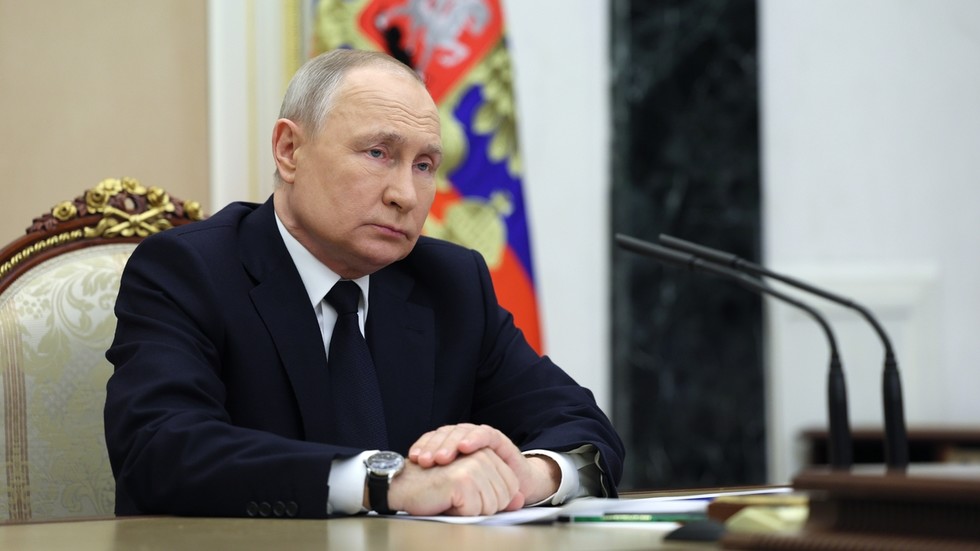Moscow will finish building a facility for tactical arms in the neighboring country by July, the Russian president has said
Russian tactical nuclear weapons might arrive in Belarus as early as this summer, Russian President Vladimir Putin revealed on Saturday. Moscow is completing the construction of a specialized storage facility for such arms, amid repeated calls by Minsk to deploy them on its soil, he added.
The site in Belarus will be ready by July 1, Putin told Russia 24 TV. The president also said that Moscow does not plan to hand over control of any tactical nuclear weapons to Minsk and that it would only deploy its own arms to Belarus. He did not specify when exactly the weapons would be transported to the new site.
The move was prompted by the UK’s decision to provide Kiev with depleted uranium munitions, Putin explained. The UK announced earlier in March that it plans to send the shells to Ukraine for use with Challenger 2 battle tanks. Moscow blasted the move as a sign of “absolute recklessness, irresponsibility and impunity” on the part of London and Washington.
The US dismissed Russia’s concerns by calling depleted uranium shells a “commonplace type of munition” that has “been in use for decades.” The Russian Defense Ministry then warned that their use could trigger nothing short of a radioactive disaster in Ukraine, citing the aftermath of the use of such munitions by NATO in Iraq.
Belarusian President Alexander Lukashenko has repeatedly raised the issue of threats posed to his nation by nuclear weapons deployed by the US to EU countries. In October 2022, he pointed to “nuclear sharing” talks between Washington and Warsaw, warning that nuclear weapons could be placed in Poland, which borders Belarus.
Minsk needs to take “appropriate measures” to address this threat, Lukashenko said at that time, adding that he would discuss the matter with Moscow.
Currently, US nuclear weapons are deployed in Belgium, Germany, Italy, the Netherlands, and Türkiye. In 2021, Russia called on the weapons to be repatriated as part of its security proposals, but the US and NATO refused.
Ghana is interested in purchasing a floating nuclear power plant from Russia, Ghanaian Ambassador to Russian Koma Steem Jehu-Appiah told Sputnik.
"I know that our minister of energy was here last year and signed a corresponding agreement. I think this is innovative, and in a conversation with the minister of energy, he said that the country is interested.
So, Ghana could purchase such a nuclear power plant," the diplomat said when asked about the possibility of Ghana purchasing a floating nuclear power plant.
Russia and Ghana began cooperation in the field of nuclear energy after signing an intergovernmental agreement in 2015.
The agreement outlined plans for joint work in the areas of training specialists, building nuclear power plants and related infrastructure, and providing maintenance services. In October 2023, representatives of Rosatom met with the Ghanaian Ministry of Energy in Cape Town. At the meeting, Russia proposed using floating nuclear power plants to supply power to ...














